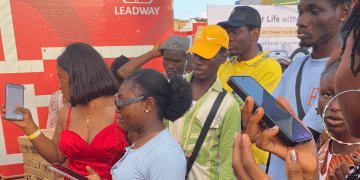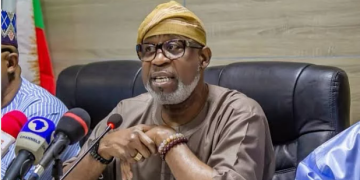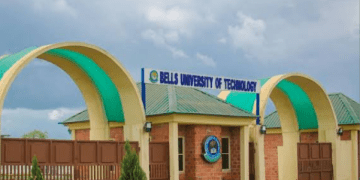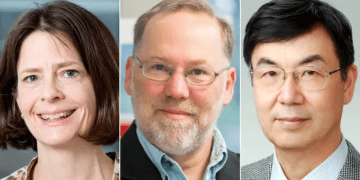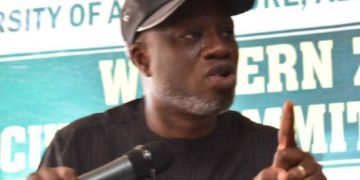Caleb University New VC Unveils 7 – Point Agenda, Calls For Caution On Use Of AI In Research
By Ayobami Ife, Abeokuta
The newly appointed Vice-Chancellor of Caleb University, Professor Olalekan Asikhia, has launched a seven-point agenda aimed at fostering academic excellence, research and innovation, World – class entrepreneurial and financially sustainable University among others.
Asikhia also said that the university has embraced Artificial Intelligence(AI) in a manner that would not kill rigorous intellectual and critical thinking.
According to him, Caleb, reputed to be the biggest private University in Lagos State, is the business of producing thinking graduates that solve problems and not intellectually bankrupt individuals.
He warned that over dependent on AI for research was capable of killing critical thinking and engendering intellectually bankrupt citizens if not checked.
Asikhia disclosed this on Wednesday during a media interaction at the university’s Council Chamber, Imota, Ikorodu, Lagos State.
He explained that what sharpens the brain is the intellectual exercise it’s put to and critical thinking it exerts to generate insightful ideas or solutions to problems, caution that if this important role of the brain is outsourced to the AI completely, a people gradually become lazy and risk being intellectually bankrupt.
He said, “What develops the brain is the rigorous things you put your brain to use and do. We encourage AI for our PG students for example but we do the print out of what the chat box has done and improve on that. AI is supposed to be a supporter, we are supposed to improve on what AI has generated.
“I went to an American Embassy recently and the interviewer was asking me some questions and a part of my answers was ‘Caleb University is the biggest private University in Lagos’ and he looked at me in a way and went to his computer. Obviously he was asking AI and the AI ended up saying it was Covenant University. Is Covenant University in Lagos State? Are you following me?
“So, there is reason for you to even check what AI has generated and if you don’t check it, you become gradually intellectually bankrupt because you taking things hook, line and sinker. You are not different from the person that is engaging in examination malpractices because you are not thinking.So, we want the generation that can think.”
He also revealed the varsity’s commitment to igniting and nurturing the entrepreneurial skills of its students to enhance their capabilities to be job creators and self-reliant.
According to him, the university was working out collaborative arrangements between industry stakeholders and academia – both local and international, ostensibly to bridge the gap between the town and gown and ensure researches are industry – needs driven.
“We are encouraging our students to register their companies while still on campus and start operating their businesses ahead of graduation,” he said.
While harping on the 7-point agenda and commitment to their implementation, the Vice Chancellor said that his administration would concentrate on enhancing innovation and research that would position Caleb University as number one in Nigeria and 20th in Africa by 2030.
He said, “My vision is to create a godly environment for dream fulfilment, ensuring academic excellence, ensuring research and innovation, facilitating and maintaining global and international linkage collaboration, driving institutional governance, and supporting environmental sustainability.”
He noted that the university was developing a robust endowment and investment strategy to ensure financial sustainability, while commercialising its research outputs.
The VC expressed concern that the country was cutting itself short and stalling its development by restricting TETFUNDs grants only to public universities.
He urged the Federal Government to support quality research in private institutions, saying that such funding would enhance national development.
Asikhia said, “It would have been very lovely if the government could agree that private universities should benefit from TETFund. It would have greatly helped research and the general development of the nation because there are intelligent people in most of the private universities, and not encouraging their research is a minus to the nation.
“Concentrating only on public, federal, and state universities is not good for the nation. It is not allowing the nation to make use of its lofty human resources. The nation is the one cheating itself in that regard.”
Earlier in her remarks, the Deputy Vice-Chancellor in charge of Research, Innovation, Strategy, and Administration, Adetutu Ajayi, said that the university had publish cutting-edge research papers in top-tier journals, garnering
partnerships with universities in the United Kingdom and Turkey as well as few other places.
ADVERTISEMENT




